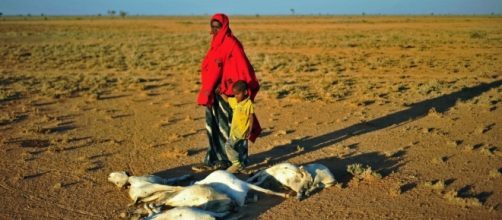It is happening again. Famine in Somalia. Food aid organizations have sounded the dire warning but is anyone listening? It was just about six years ago in June of 2011 when the United Nations declared that there was a famine in Southern Somalia – a famine which resulted in the death of some 260,000 people. At this moment 6.2 million people are facing a devastating famine, the third the African region has experienced in the last 25 years.
Why is this happening?
The term “famine” is usually linked to Drought, but it is often the result of many factors.
The 2011 famine was the result of drought combined with conflict, governance, food prices on a global scale, response to the crisis and many other factors. But generally, famine is considered a triple failure; a production failure, access failure and a failure to respond. Added to this is internal conflict and the ongoing threat and activities of Al-Shabaab. The terrorist group has blocked roads and access to food supplies.
The reality that bites
Somalia is currently experiencing a two year drought which has led to a production failure. The result is phenomenal food inflation. This combined with lower than normal expected future harvests and ongoing low levels of malnutrition and high mortality rates, make the situation catastrophic.
Then there is the drastically reduced access to food and goods and services. The drought has killed massive numbers of livestock which means purchasing power is severely reduced. And if you are asking why this continues to happen in Somalia, you can blame it on lack of action on the part of the Somalian government and their donors. Inadequate investment in poverty reduction and slow response by donors have exacerbated the situation.
Are we listening?
The lack of coverage in the media about the plight of the Somalian people is disheartening to say the least. It is as if we have somehow become immune to the impending doom that is facing the drought ridden country. According to the UN, of the $1 billion needed to deal with the immediate crisis, doners have offered less than $200 million.
Any aid to the region requires humanitarion groups on the ground to effectively administer it. Sending food is one thing but without adequate channels for distrubition, food and supplies can get into the wrong hands. Cash donations to well established humanitarian groups will go a long toward managing the crisis and averting another catastrophic event.

